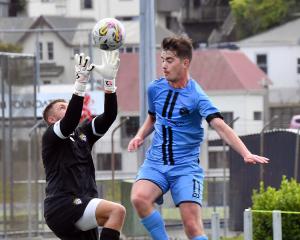
The proposal to discard the national premiership and move back to a club-based competition was confirmed on Tuesday.
Three conferences — Northern, Central and Southern — would play through the winter, before a national league between the top sides from September to December.
Football South CEO Chris Wright said the body supported the move and was glad there was a long-term plan in place.
He felt it was a more sustainable plan than what existed and the integrated and aligned season was significant.
Football South was still working with Mainland Football on what the Southern Conference — a South Island league — would look like.
He hoped to have something set before Christmas.
The federations had been working on a background proposal, although had not been able to set anything in concrete until the changes were confirmed.
He said next year would likely be a transition year and a full Southern Conference league would begin in 2022.
There were several options as to what could be used as a qualification method for next year’s conference league.
Likewise there were various options as to what the league itself would look like.
Wright said the federations would get feedback from the clubs, then put a solution forward in the coming weeks.
Meanwhile, an eighth team will be added to the women’s league, and Wright said the long-term goal was for that league to follow the men’s format.
However, women’s participation would have to increase to make it viable.
Southern United would continue to run in the women’s premiership in the meantime.
Dunedin Technical president Tony Boomer said the changes were "overwhelmingly positive".
He felt the Southern Premier League had been floundering for a while and this was a way to bridge the gap between that and the national league.
He added the financial side of a wider spread league was "not that scary" with funding and cost equalisation across the country.
While the Southern teams have struggled against Mainland teams in recent years, Boomer felt a full South Island league would be more competitive.
Previously they were playing one round in a lower quality league to qualify, while Mainland was playing two rounds of high quality football.
Playing in the higher quality league from the start would make a big difference.
Several other clubs contacted by the Otago Daily Times yesterday declined to comment.










